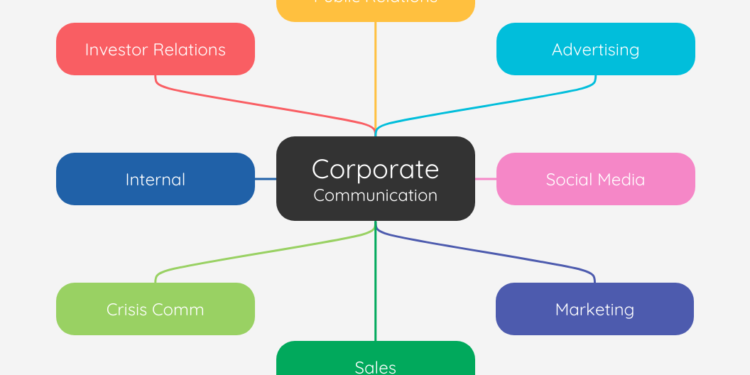Corporate communication is the process of developing and implementing effective communication strategies within an organization to build and maintain positive relationships with various stakeholders, including customers, employees, investors, suppliers, and the general public.
It involves creating, managing, and disseminating information, both internally and externally, through various communication channels such as advertising, public relations, social media, and corporate branding.
Corporate communication plays a crucial role in shaping the image and reputation of an organization, as it helps convey its values, vision, and goals to its stakeholders.
Effective corporate communication can help build trust, enhance loyalty, and foster a positive corporate culture, ultimately leading to increased productivity and profitability.
In recent years, there have been several challenges facing corporate communication. While there are several challenges facing corporate communication today, many solutions are available to address them.
This article sheds light on some of these challenges and possible solutions.
Read: Why It Is Important For A Business To Have A Crisis Management Plan
One of these challenges is the rise of social media. Social media has revolutionized how people communicate, making it easier for individuals to share information and opinions with a wide audience. However, it has also made it more challenging for companies to control their messaging, as negative feedback or criticism can quickly spread across social media platforms.
To solve this, an organization should Develop a clear communication strategy. The communication strategy should outline the company’s goals, key messages, target audiences, and the channels and tactics to communicate with them. This will help ensure that communication efforts are aligned with the company’s overall objectives and that messages are consistent across different platforms.
Another challenge is the augmented demand for transparency. With the increasing availability of information and the growing emphasis on corporate social responsibility, stakeholders demand more transparency from companies in their communication practices.
Read: This Is How You Build Brand Loyalty
This includes providing clear and accurate information on the company’s financial performance, environmental impact, and social policies. Companies can implement several strategies to address this challenge, including engaging with stakeholders to build trust and credibility.
Companies need to engage with their stakeholders regularly and seek feedback on their communication practices. This can involve conducting surveys, holding focus groups, or meeting with stakeholders.
Globalization is another challenge that faces Corporate communication today. Companies must navigate different cultural norms, languages, and communication styles as they expand their operations globally. This can be challenging, as a message that resonates in one culture may be less effective or appropriate in another.
To solve this, a company needs to invest in training and development programs for their employees to communicate effectively across cultures and languages. This can include language classes, cross-cultural communication workshops, and media training for executives.
In conclusion, by developing a clear communication strategy, engaging with stakeholders, and investing in training and development, companies can improve communication practices and build stronger relationships with various stakeholders.
Email your news TIPS to editor@thesharpdaily.com

















